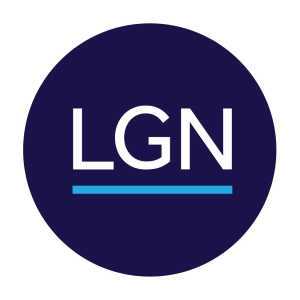Insurers Instructed to Waive Copays for Virus Testing, Services
The Trump Administration on Saturday moved to require group health plans and other insurers to cover both coronavirus testing and some related treatment services with no copays or other cost sharing to beneficiaries, including tests that determine if a person has previously had Covid-19. The Centers for Medicare & Medicaid Services, along with the Departments of Labor and the Treasury, issued guidance over the weekend that clarified that Americans with private health insurance should have access to testing and certain other related services, including antibody testing, at no cost.
“It is critical that Americans have peace of mind knowing that cost won’t be a barrier to testing during this national public health emergency,” said CMS Administrator Seema Verma. A number of private insurers have vowed to make testing free for those with insurance. The Families First Coronavirus Response Act required group health plans to cover Covid-19 testing and related items at no cost. The new guidance clarifies that insurers should cover urgent care visits, emergency room visits, and telehealth or in-person visits to the doctor’s office that result in an order for or administration of a Covid-19 test to be covered with no cost sharing.
NIH Tracks Undetected Virus Spread in Healthy Americans
The National Institutes of Health wants to track the “true magnitude” of the coronavirus in the U.S. in a new research project that could provide crucial insight about how and when the nation can begin to open back up. The study aims to enroll 10,000 healthy volunteers to determine how many adults have antibodies of the SARS-Cov-2, the virus that causes Covid-19, but haven’t shown any symptoms of being sick. The presence of those antibodies in the blood indicates a person had a prior infection, and that information can identify the extent to which the virus has spread without being detected, the National Institute of Allergy and Infectious Diseases (NIAID) said.
“This study will give us a clearer picture of the true magnitude of the COVID-19 pandemic in the United States by telling us how many people in different communities have been infected without knowing it, because they had a very mild, undocumented illness or did not access testing while they were sick,” NIAID Director Anthony Fauci said in a statement. Most testing in the country to date has relied on molecular tests that determine whether someone currently has Covid-19 but can’t tell if someone had the disease and then recovered.
HHS Rolls Out Initial $30 Billion for Hospitals From CARES Act
The federal government delivered $30 billion to hospitals last Friday in the first round of what will ultimately be $100 billion in funds to help hospitals defray costs associated with Covid-19 and treating uninsured patients. The funding comes from the Coronavirus Aid, Relief, and Economic Security (CARES) Act, which was signed into law last month. The distribution of the $30 billion will go to Medicare hospitals and be delivered electronically based on account information the government and its partners have on file. Health providers that normally get paper checks will receive their payments via check in a few weeks.
“HHS and the Administration are working rapidly on additional targeted distributions to providers that will focus on providers in areas particularly impacted by the COVID-19 outbreak, rural providers,” and hospitals that have low Medicare reimbursement rates, the agency said in a statement. Hospitals have to attest they are not billing any Covid-19 patients using out-of-network rates as a condition of receiving the $100 billion from the federal government.
Newly Unemployed Scramble to Enroll in ACA Plans
Millions of people joined the ranks of the unemployed in March as state officials shuttered businesses and issued stay-at-home orders in an attempt to stop the spread of the coronavirus. As many as 16.8 million people applied for unemployment aid over the last three weeks alone, according to the latest figures from the Labor Department, and now many of those people are looking to the HealthCare.govmarketplace to access new insurance plans.
The marketplace, created by the Affordable Care Act, offers private insurance plans to residents of 38 states. The other 12 states and the District of Columbia operate their own health insurance platforms. Open enrollment on HealthCare.gov typically runs from November 1 to December 15, but is open to those at any point in the year who have a qualifying life event, which includes the loss of an employer-sponsored health plan. Other qualifying events include getting married or divorced, having a child, experiencing a death in the family, moving, or a change in income that affects your coverage.
Virus Testing Capacity Seen Ramping Up
President Trump’s top adviser on coronavirus testing said that by May, the U.S. will be in the “ballpark” of the diagnostic capacity it needs, should the president decide to recommend parts of the country relax social distancing practices. Health and Human Services Assistant Secretary Brett Giroir said on Saturday the U.S. is working on four forms of diagnostics it needs to re-open the economy: widespread surveillance to catch new flare-ups; testing of people who have specific symptoms; contact-tracing for confirmed cases; and antibody testing to know who’s recovered from the virus, which he said is still weeks away. President Trump tapped Giroir to accelerate U.S. testing for the coronavirus last month. While the U.S. has now tested more than 2.2 million people for the virus, fewer than 100,000 nationwide had been tested by March 19.
